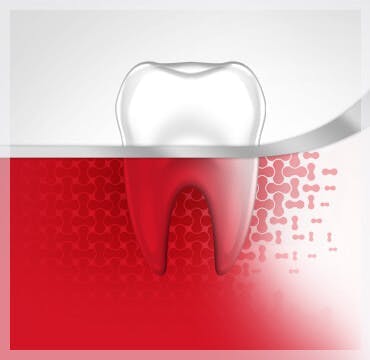What Is Halitosis and What Causes It?

You might have bad breath because you ate a dish loaded with garlic and onions. But you might also have bad breath for other reasons. Halitosis, derived from the Latin name for “bad breath”, is relatively common.1
But not all instances of bad breath can be traced to meals with specific ingredients. In many cases, there are other issues to blame. Learn what causes halitosis and what you can do about it.
What Causes Bad Breath?
Bad breath can be an embarrassing and unpleasant condition to suffer from, especially when it comes to interacting in social situations. While some instances of bad breath can be harmless and traced to what you’ve eaten, others may be indicative that something’s wrong.
Smoking and Tobacco
There are a host of health issues associated with tobacco use. Smoking can give you bad breath, stain your teeth, and lead to various forms of cancer.2 Tobacco can affect your senses of smell and taste, so you may not even be aware of how your breath smells.2 Additionally, use can irritate tissues in your mouth and contribute to gum disease.2
Medical Issues
Your halitosis may be a result of a host of medical conditions like a sinus or respiratory infection, tonsillitis, GERD, diabetes, or an issue with your liver or kidneys.1,2 If your dentist has ruled out an oral issue, talk to your healthcare provider to get to the bottom of things.
Dry Mouth
Saliva helps to rinse bacteria and food particles out of your mouth.2 If you’re not making enough saliva and experiencing dry mouth, your mouth isn’t being cleaned as often as it should be, and bacteria can build up and cause bad breath.2
Poor Oral Hygiene
Bad breath is most caused by bacteria that’s present on the teeth.1 If you’re not taking good care of your mouth, bacteria can leave a foul smell.2 Unbrushed teeth and gums can contribute to a buildup of plaque, which can lead to gum disease.2
Bleeding Gums and Bad Breath
Gum disease is caused by plaque that has built up in the mouth.3 The tissues that hold your teeth in place become infected and sore and can lead to gums that are swollen, red, and bleeding.3 If left untreated it can spread from the gum tissue to the teeth and jawbone, making it hard to chew and compromising your teeth.3 Along with swollen gums that may bleed, another symptom of gum disease is persistent bad breath.3
How parodontaxTM Can Help
Keep your teeth and gums healthy by brushing your teeth twice a day with a stannous fluoride toothpaste like parodontax, which works to reduce the buildup of plaque along the gum line, which is the main cause of bleeding gums. By reducing the buildup of plaque along the gum line, parodontax helps to keep gums healthy and teeth strong, and freshens breath*.
It’s important to remember, though, plaque is just one of a number of potential causes of halitosis, so make sure you speak to your dentist or hygienist if you have any concerns.
*compared to sodium monofluorophosphate toothpaste.
Source Citations:
- Halitosis. National Library of Medicine. NLM. Accessed 10/4/2023
- Bad Breath. Mouth Healthy. https://www.mouthhealthy.org/en/all-topics-a-z/bad-breath. Accessed 6/21/23.
- Periodontal (Gum) Disease. National Institute of Dental and craniofacial Research. https://www.nidcr.nih.gov/health-info/gum-disease. Accessed 6/21/23.




